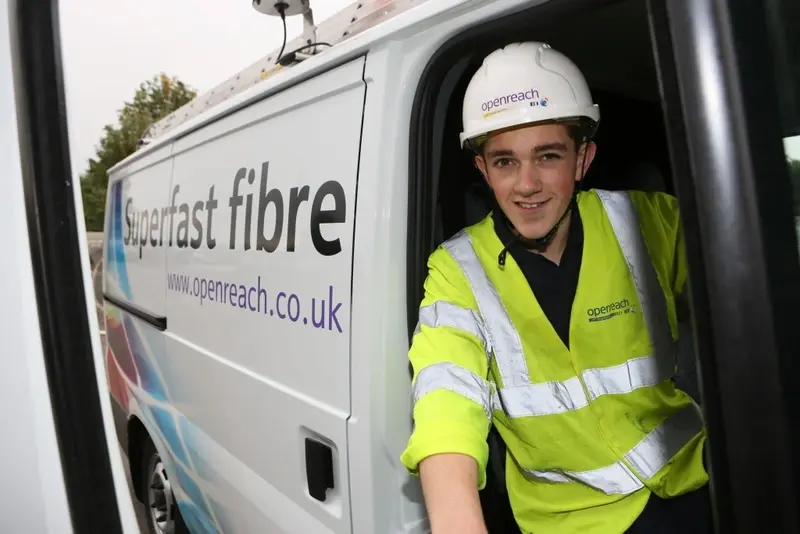
UK telecoms giant BT (BT.A) has reported first quarter to 30 June results showing widespread declines in profit and cash flow and inevitable hikes in capital expenditure (capex).
Revenue eased marginally from £5.72bn to £5.63bn (about 1.4% down) while adjusted earnings before interest, tax, depreciation and amortisation (EBITDA) fell similarly to £1.96bn, having reported £1.98bn this time last year once the figures are restated under new IFRS 16 rules.
IFRS 16 are new and complex financial rules dictating the way leases and rents are accounted.
But normalised free cash flow slumped, falling from £507m to £323m as capex jumped 11% to £931m as BT throws investment behind Openreach fibre-to-the-premises (FTTP) expansion and 5G mobile networks.
FASTER FIBRE
FTTP roll-out is accelerating fast. ‘Openreach is now passing 20,000 homes a week, up from just 5,000 a year ago, representing an annual 1m or so premises,’ says Megabuyte analyst Philip Carse.
That means BT’s fibre-based internet to homes and businesses network now tops 1.5m premises yet even the company admits that the pace still needs to increase if it is to play its part in getting superfast fibre to the circa 27m UK premises.
BT anticipates further Government backing to help out.
Beyond all of this the BT story remains largely the same with downward pressures on revenue and EBITDA and upward pressure on capex, as the company invests in FTTP and 5G mobile.
There’s also net debt of £17.8bn to service and a pension fund deficit, although a funding plan for the latter has been agreed for the immediate future.
DIVIDENDS STILL DOMINATE
Amid all of this shareholders may wonder how BT hopes to keep paying its hefty dividends.
It is likely the reason why the share price has slumped nearly 5% today to a rough eight-year low of 185.6p.
In May BT chief executive Philip Jansen said that the company would stick to its 15.4p dividend per share commitment for the 12 months to 31 March 2019, and it did. He also gave a firm steer that investors can expect a similar payout this year to 31 March 2020, implying an 8.3% income yield.
That increasingly looks like a mistake, and in at July’s AGM chairman Jan du Plessis hinted that a cut to the dividend is likely, at some point. That’s what investors by and large anticipate anyway (and have been for ages) so getting on with rebasing the payout, while painful for investors in the short-term, will allow the conversation to move on.
Until it does, and the sword of Damocles is removed from the dividend angle, it will remain difficult to assess the shares fairly.




